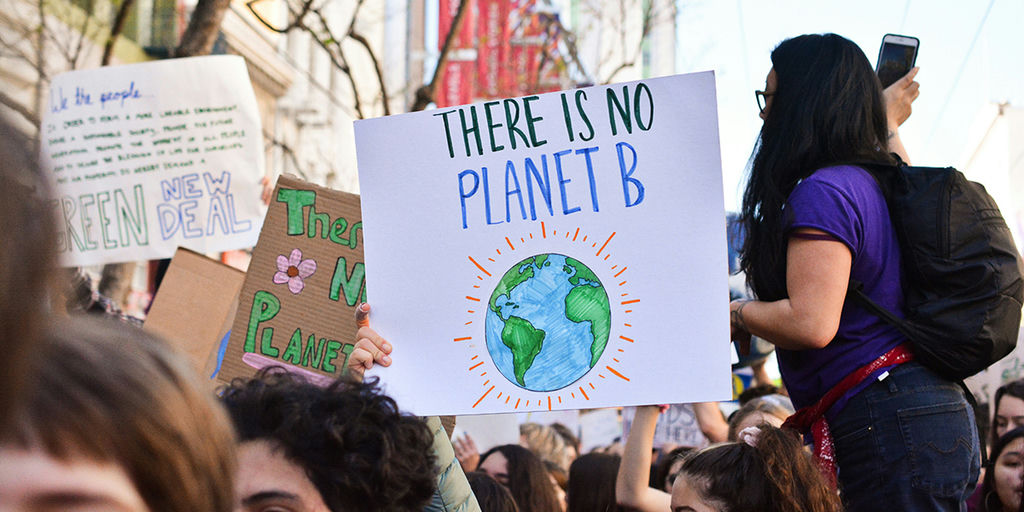Facing the Mental Toll of Climate Change

(Image Source: Li-An Lim/Unsplash)
Climate change is real and so is climate distress.
The condition is exactly what it sounds like – distress over climate change. It encompasses two related terms that are perhaps used more frequently: climate anxiety and climate grief, according to New Hampshire psychiatrist Dr. Robert Feder, a member of the steering committee of the Climate Psychiatry Alliance.
“Climate anxiety refers to concern and worry about things that could happen in the future. Things that people are worrying about that are going to happen due to climate change,” said Feder. “And climate grief refers to grief and despair and feelings of loss over things that have happened. Losses that have already occurred in the environment due to climate change.”
The symptoms are also somewhat distinct, he noted. Similar to other forms of anxiety, climate anxiety can be accompanied by physical symptoms such as shortness of breath, a rapid heart rate, or difficulty falling asleep. The symptoms of climate grief are more like those of depression, including lack of energy or appetite, difficulty concentrating, or feelings of pessimism.
“If you’re really experiencing climate anxiety or climate grief, you know it,” Feder said.
Recognition of these specific conditions is relatively new. The term “climate grief” is largely attributed to researchers Ashlee Cunsolo and Neville Ellis in a 2018 paper published in the journal Nature Climate Change: “Ecological grief as a mental health response to climate change-related loss.”
“We argue that grief is a natural and legitimate response to ecological loss, and one that may become more common as climate impacts worsen,” the authors wrote.
Polling in the United States suggests these conditions are already common. Sixty-eight percent of adult respondents to a December 2019 poll for the American Psychological Association (APA) cited having some level of “eco-anxiety”. Among adults age 18-34, 47% reported that their lives on a day-to-day basis were impacted by climate change-related stress.
As the concept of climate grief is so new, much about it remains unknown, according to a 2020 article from the APA. Part of that is because it is not connected to a fixed point in time, in the way people grieve the loss of a loved one.
“Climate grief is different from the grief we experience in other circumstances. First, climate grief is usually more ambiguous. Uncertainties, such as not knowing specific impacts and when those impacts might occur, make it hard for us to emotionally tolerate a situation,” ecopsychology researcher Shawna Weaver, Ph.D. author of the book Climate Grief: From Coping to Resilience and Action, told Earth Hero. “Because climate change comes with a lot of ambiguity, it causes even more anxiety and a difficult path through the grief process, and also makes it easier for people to deny it (which is the first stage of grief),” she added.
There is also no “norm” to return to from climate grief, Weaver said. The changes to the planet, ultimately, impact all people.
Among those who may be at greatest risk for suffering from this form of grief, the APA article says: children and teens, who will live with the effects of climate change for decades; climate activists and scientists, whose daily lives are intertwined with the crisis; and people who work closely with the land and are more likely to notice negatives changes happening. Feder also noted climate refugees, who have personally experienced a climate disaster.
How, then, to face climate distress?
Weaver and Feder discussed similar approaches: focusing on relaxing, using techniques such as meditation; going into nature; exercise; maintaining social and familial connections; and particularly taking some form of action on the climate crisis.
“We increase our dopamine and endorphins by taking action, creating community, building on successes, accomplishing tasks, and moving our bodies,” Weaver said. “If you are experiencing climate grief or anxiety, find a local cause directly related to that anxiety, and get involved. It won't just help you emotionally, it will move the dial on the very source of that pain.”
On his Climate & Mind website, Seattle psychotherapist Andrew Bryant discusses the value of therapy for people suffering climate grief, particularly providers who specialize in climate-related mental health issues. He acknowledges that the number of these therapists remains limited; the Climate Psychology Alliance North America maintains a directory of ”climate-aware” therapists.
While stating that there is no firm data, Feder guessed that the percentage of people suffering from climate distress who need professional mental help could be about 10%. That would be at the level where the condition is causing them to isolate from friends and family and impeding their ability to work, he said.
The Climate Psychiatry Alliance advocates for greater awareness of issues related to climate change in the mental health community, including by partnering with the Climate Psychology Alliance North America on a program to train psychotherapists to become climate-aware therapists. The organizations also hope this type of training will eventually be incorporated into all psychiatry residency training programs, Feder said.
However, there will never be enough mental health professionals to help everyone suffering from climate distress, he added. One alternative approach being developed is “transformational resilience”.
“This is really a public-health type of approach to the problem, where entire communities are treated in a proactive, preventative type of way, where they hopefully can get education about resiliency methods, prepare for what they can do or what to expect in their particular community about climate problems or disasters, and build up their own cognitive abilities and social abilities to be able to deal with these issues so they can prevent the more severe forms of climate anxiety and grief before they happen,” he said.
Legislation was introduced last year in the Senate and House of Representatives to strengthen these programs, including by competitive grants from the Centers for Disease Control and Prevention. Both versions of the Community Mental Wellness and Resilience Act remain in committee.
Looking to get involved? Earth Hero encourages actions to help fight the climate crisis, including through individual and group advocacy. A simple action related to getting outside could be a great place to start.

